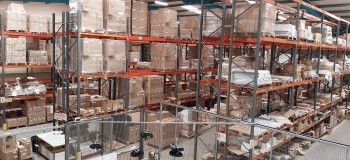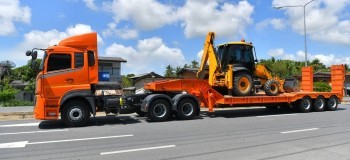12/06/2025
Insights
Buying used assets at auction can be an effective way of upgrading your operations and securing new machinery and equipment for your business at a fraction of the price of buying new. At some auctions, you even buy all the assets of insolvent and liquidated firms, giving you easy access to everything you need to start your own company.
As a quick example, at our asset auctions, you can currently buy all the assets of a microbrewery or timber and hardware supplier, so you can get up and running quickly at a low cost. We also sell many individual assets, such as commercial vehicles, construction plant and woodworking machinery.
If you’re looking for cheap assets to buy, asset auctions are an excellent place to start your search - but how do they work? We’re here to guide you through the process so you can bid with confidence.
A guide to buying used assets at auction
Where to buy assets - online or offline auctions?
If you want to buy used assets at auction, your first decision is whether to attend a physical auction or to bid online. In recent years, online asset auctions have become hugely popular as they enable you to bid on lots from throughout the UK, rather than just those in your local area.
No travel costs are involved, and if you don’t win the item, at least you haven’t wasted time attending a physical auction. That’s why many buyers favour online auctions, and that’s the process we’ll guide you through today.
Research the auction house and assets
Once you’ve decided to browse and buy assets online, your next job is to find a reputable auction house with a good reputation and a history of transparent asset sales in your industry.
First, browse the auction’s website to see what assets it’s offering for sale and those it has sold in the past. That will give you a good idea of the type of machinery, equipment and other assets it commonly deals with. Then read their terms and conditions to understand the fees involved and how the process works.
Register with the auction site
If you see an asset you’re interested in, you’ll usually have to register with the auction site before you can bid. To register, you must create an account using your email address and a password. You may also have to provide proof of address and photo ID. Once registered, you will be approved to bid on any online sales on that site.
Do your due diligence
The bids you place at an online auction are legally binding, so you must do thorough due diligence first. Reputable auction sites produce comprehensive sales listings with detailed descriptions and high-quality images. They should also clearly identify any faults, damage or maintenance requirements.
You can also contact the auctioneers with any questions you have. If a maintenance log or service history is not included in the listing, you should ask to see it. It’s also a good idea to physically inspect items where possible. On most lots, you have the option to inspect the goods, which helps to mitigate risk.
Place your bid
When you find an asset you’re interested in, you can make a bid. Online asset auctions can last anywhere from 48 hours to 30 days, so make sure you’re aware when the auction ends, as that’s when most of the bidding takes place. The auction platform will show you details of the current bid, the bid increments, whether there’s a reserve price and if it’s been met.
When bidding, you can bid a specific amount or use something called a maximum bid price. A maximum bid price is the highest amount you are willing to pay for the asset. The system then places bids automatically on your behalf up to your maximum bid price. Any new bids made in the auction's final minutes will usually lead to a bidding extension to give other bidders the chance to respond.
Make the payment
If you are the highest bidder at the end of the auction and the seller accepts your bid, you will win the asset and receive an invoice for full payment when the auction ends. You will usually be required to pay in full within 24 to 48 hours of the sale closing. You will have to pay a buyer’s premium and VAT along with your bid amount.
Arrange collection
It’s essential to arrange prompt collection of the asset because it will usually become your legal responsibility on receipt of the invoice. You will receive a collection note when you make the payment. The auction house will usually have a courier company it works with that can collect and deliver assets on your behalf if you cannot collect them yourself.
Tips for buying used assets at auction
Now you know how to buy assets at auction, here are a few quick tips to help you find the right deal.
-
Know the value of an asset - Never bid blind on an asset. Make sure you know how much it would cost new and look for other items of a similar age and condition to determine a fair price.
-
Refresh the screen regularly when bidding - Refreshing the screen will ensure you’re aware of any new bids and give you plenty of time to react.
-
Make sure you have a reliable internet connection - The last thing you want is for your WiFi to disconnect in the last few minutes of the auction, so make sure your device has a stable connection, is fully charged and have a backup device ready in case of difficulties.
-
Be prepared to walk away - Always have a firm limit in mind before you start bidding and walk away when the bid amount exceeds it.
Find cheap assets to buy at Eddisons Asset Auctions
If you want to buy used assets, try Eddisons Asset Auctions. We have auctions in almost every sector with diverse assets and secure, transparent sales. As a leading national auction house, we provide a reliable and professional service for buyers and sellers and specialise in insolvency and liquidation auctions, which deliver excellent value for buyers.
Browse our cheap assets to buy and contact our sales team if you have any questions about the auction process or any of our lots.
Get in touch with the BTG Eddisons Asset Sales team
Please contact us for more details and information











